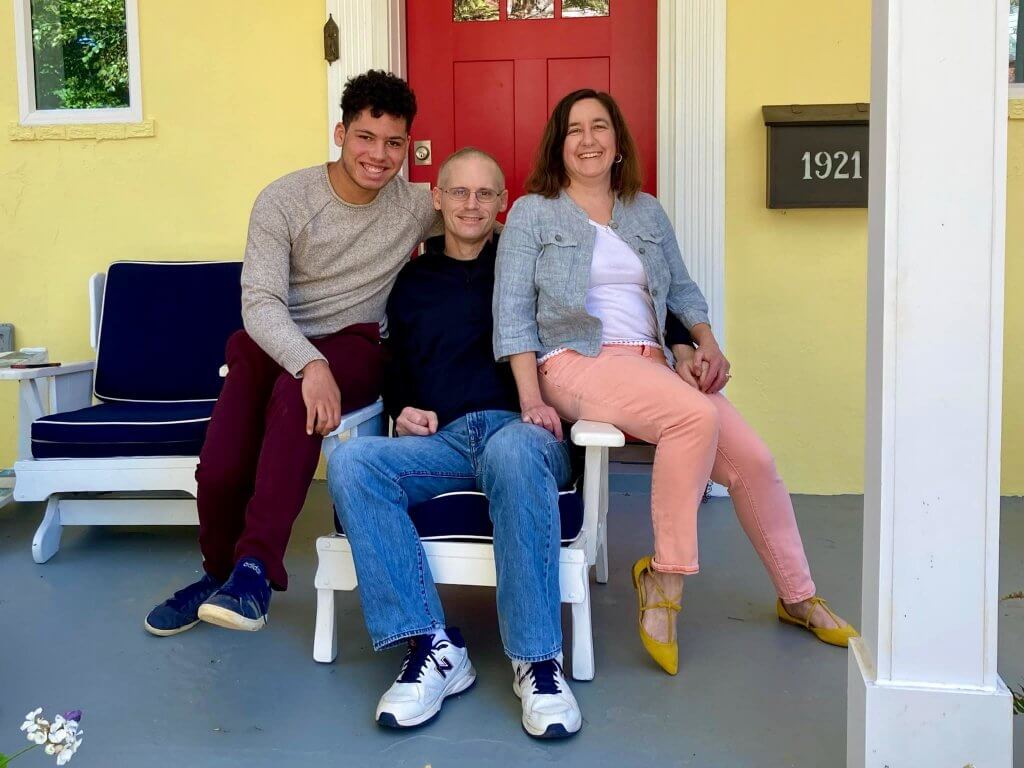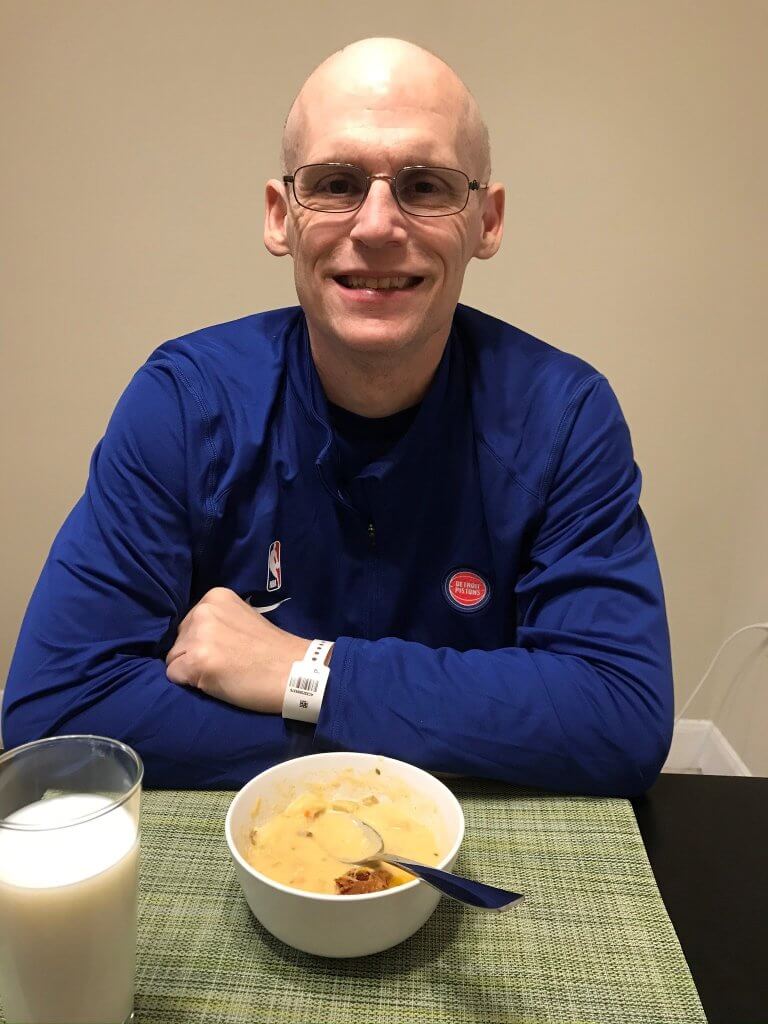As an economist specializing in statistical analysis, Dan Rosenbaum has done everything from help the federal government use more evidence in its decision-making to assist several National Basketball Association (NBA) teams in finding and signing the best players. Research and number-crunching are his expertise, so when Rosenbaum learned he needed a life-saving stem cell transplant due to acute lymphocytic lymphoma (ALL), the former college professor put these same skills to work.
Rosenbaum lives in Arlington, Virginia, which is close to several major hospitals and cancer centers. But as he evaluated all available options, he determined that for he and his family, the best venue for a transplant — with the best combination of a highly-experienced transplant clinicians, cutting-edge treatment options including clinical trials, access to an international database of potential stem cell donors, and supportive family in the area — was nearly 500 miles away in Boston.
Traveling that far for the procedure and lengthy recovery would mean uprooting his family for more than six months, but Rosenbaum deemed it worth the risk. And, like so many of his other calculations, this one was on the money. He went to Boston and Dana-Farber Brigham Cancer Center, which performs more than 500 stem cell transplants for adult patients each year. His own transplant was overseen by a team led by Joseph Antin, MD, a pioneer in the field.
Now Rosenbaum is back home in Virginia, and back to helping other people solve their problems. And while his cancer has returned, it is being closely monitored there and by Antin in Boston.
“Everything was so easy to manage,” Rosenbaum says of his stem cell transplant. “It’s a very complicated procedure, but I always felt like I knew just what was going on because of Dr. Antin and the entire team. They were amazing, and he’s still there whenever I need him.”

More than a quick fix
Being part of a winning team is nothing new to Rosenbaum. Prior to his ALL diagnosis, excellent health and athleticism had been central to his life.
Captain of his high school’s football, basketball, and baseball teams, he played on a national championship football squad at the University of Dayton before earning his PhD in Economics and entering academia. His varied career included stints with the White House during the George W. Bush and Obama administrations, as a consultant and executive with three NBA teams, and a decade as an Economics professor at the University of North Carolina at Greensboro. He is married, with a teenage son, and through it all has found time to stay physically fit.
So in early spring of 2020, when Rosenbaum noticed a bruise on his upper thigh and some shaving nicks on his face were not healing properly, he was not overly alarmed. It took him until June to get blood tests near his Arlington home; that same night, he began experiencing a strong, constant pain in his chest.
“It felt like a heart attack, so I ended up back in the same hospital where I had just had my blood tests,” recalls Rosenbaum. “They did more tests, determined I was extremely low on platelets, red blood cells, and healthy white blood cells, and said they needed to treat me immediately.”
Rosenbaum soon received his ALL diagnosis, and started his first of two intense rounds of chemotherapy — one as an inpatient and one at an outpatient clinic. During the first, he marked his 50th birthday in his hospital room.
“I went into remission, but they told me this was probably not a permanent fix,” recalls Rosenbaum. “The best solution was a stem cell transplant, and that was not something they had a lot of experience doing in Virginia.”
So Rosenbaum did what he does best, researching where clinicians with the best experience performing transplants — and helping transplantees find donors — were based. This led to a Zoom call with Antin.
“Dr. Antin and I hit it off right away,” says Rosenbaum. “He is very empirical and evidence-based like me. And he really cared about the quality of the donor-patient match and tailoring things for each patient. One option was finding a relative to be my donor, but Dr. Antin knew we could find a better match — and we did.”

Still in the running
In October 2020, Rosenbaum came to Dana-Farber Brigham Cancer Center for his transplant. After two weeks as an inpatient, he recovered for six months in Massachusetts with wonderful support from family there and loved ones and colleagues nationwide. It was the height of COVID-19, but as usual he saw an upside. Since everybody was wearing masks, it gave him extra protection in his immunocompromised state.
Rosenbaum felt so strong by the time he got back to Virginia in April 2021 that he ran a half-marathon with his sister that August. In December he was cleared to run the 2022 Boston Marathon® as a member of the Dana-Farber Marathon Challenge team, then the same day learned that a relapse of his ALL would put those plans on hold. He spent Christmas in a Virginia hospital, he was soon walking to doctor’s appointments and eyeing a return to running.
“Being a patient is a lot like playing sports or other endeavors in life,” Rosenbaum reflects. “All we can do is be vigilant about the process — eating healthy, getting exercise, following our treatment regimens, and asking good questions.”
Such an approach has already played dividends.
“Dan’s great attitude throughout his stem cell transplant process and recovery was crucial to his getting back home,” says Antin. “He has taken his relapse in stride, and we are working on establishing a regimen that will put him back into long-term remission.”
